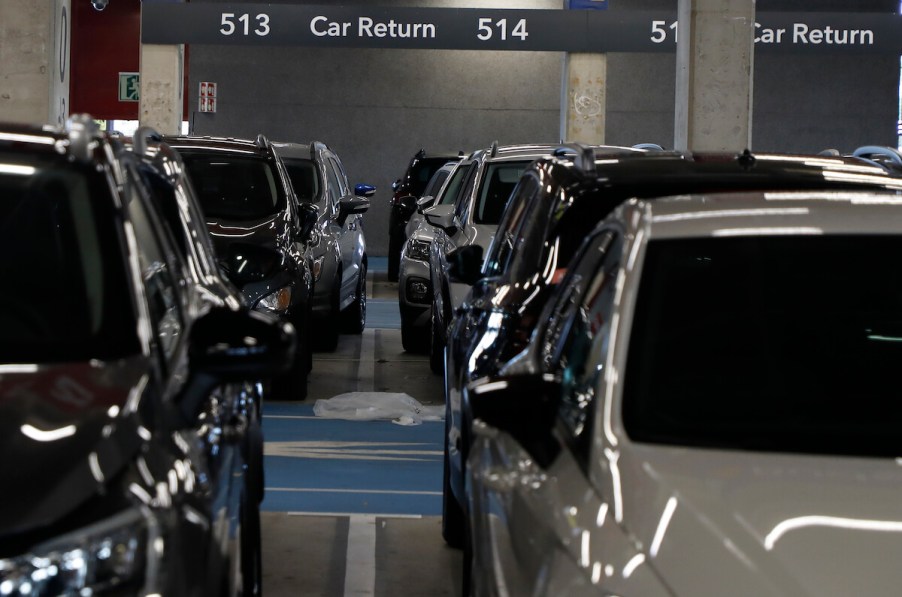
9 Factors That Affect the Cost of SUV Rentals
Rentals for SUVs are a convenient and popular option for individuals and families looking for a spacious, comfortable, and versatile vehicle for their travels. Whether you need a car for a road trip, a family vacation, or running errands, an SUV rental offers the ideal solution. With a wide range of options to choose from, you can select the perfect SUV to fit your needs, preferences, and budget. From booking the reservation online to picking up the car at the rental location, renting an SUV has never been easier.
1. Age, make, and model of an SUV rental are factors worth considering

The age of the vehicle or its make and model can be an essential factor to consider when renting an SUV. Newer vehicles may offer more advanced features and improved safety technology but may also come with a higher rental cost. On the other hand, according to Advantage, older vehicles may be more affordable to rent, but they may also have higher mileage and a higher likelihood of maintenance issues.
2. Including additional drivers in your rental plan matters when it comes to payments
Including additional drivers in your rental plan ensures that everyone who needs to drive the vehicle is covered by the rental agreement and is authorized to do so. It also helps to spread the responsibility for any damages during the rental period. However, it’s important to remember that additional drivers may come with additional fees, so it’s essential to factor this into the overall cost of your rental.
3. Determining your SUV rental period is very important
One of the crucial factors to consider when renting an SUV is the length of your rental period and when the rental will end. This can impact the overall cost of the rental and the type of vehicle you choose to rent. For example, if you only need the SUV for a short weekend trip, a compact or mid-sized SUV may suffice.
4. Factoring in the cost of rental car insurance helps you understand your options and coverage
Rental car insurance can provide peace of mind by covering costs in case of an accident, theft, or other damage to the vehicle. It is important to weigh the cost of insurance against the potential risks involved with driving a rental car. Some credit card companies offer rental car insurance as part of their benefits.
5. Fuel type is a vital factor to consider before renting an SUV
SUVs have different fuel requirements, such as regular gasoline, premium gasoline, or diesel. It’s crucial to know the fuel type of the SUV you’re renting to ensure that you can refuel it correctly and avoid any potential misfuelling incidents. To assess whether renting an SUV is cost-effective for you, it’s a good idea to compare the gasoline costs for your car and the SUV you’re renting.
6. Safety features should be taken into account before renting an SUV
Choosing a vehicle that has received high safety ratings from organizations such as the National Highway Traffic Safety Administration (NHTSA) or the Insurance Institute for Highway Safety (IIHS) is important. These ratings can give you peace of mind and confidence when you’re on the road, especially when traveling with family or loved ones.
7. Additional offers and inclusions are key factors to keep in mind
Some rental car companies offer special promotions and discounts, such as discounted rates for booking online or loyalty programs that reward frequent renters. These offers can help make the rental process more affordable and provide added value to the overall rental experience.
8. Checking the SUV size is crucial for your comfort and convenience
The size of the SUV can affect not only the amount of space you have for passengers and luggage but also the vehicle’s maneuverability, fuel efficiency, and even parking requirements. Consider whether you need a compact SUV for easy city driving or a full-size SUV for maximum passenger and cargo space.
9. Collision Damage Waiver coverage for SUV rentals is something worth an assessment
Collision Damage Waiver (CDW) coverage is a type of insurance offered by rental car companies to help protect renters from financial liability in the event of an accident or theft. This type of coverage may be optional and may come at an extra cost, but it can provide peace of mind and protection against unexpected expenses while on the road.


